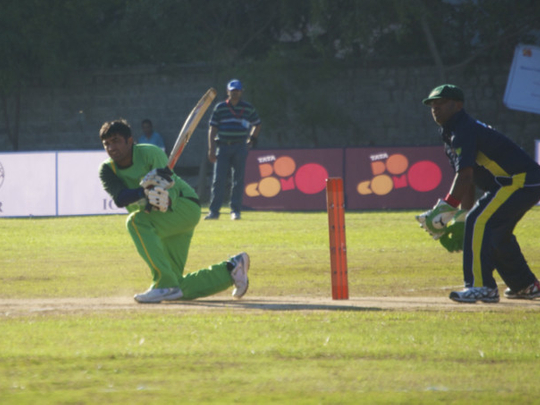
Pakistan’s international men’s cricketers have frequently found themselves, along with the reputation of the sport, breaching the nadir in recent years. While the media’s attention has been focused on match-fixing scandals and hostile home conditions, there has been one group of Pakistani cricketers whose success has gone relatively unnoticed: the blind cricket team.
The country’s blind cricketers are the most successful in the sport’s history, having won two (2002 and 2006) of the three blind World Cups, and reaching the finals in 1998. They also made it to the final of the inaugural T20 Blind World Cup in 2012, where they lost to hosts and rivals India.
Furthermore, it’s the only international men’s cricket played in Pakistan, with the national team still unable to play in their home country due to hostile conditions.
The fourth World Cup Cricket for the Blind will be held in Cape Town, South Africa, from November 25 to December 9, where the team is one of the hot favourites to claim the trophy. The second edition of the Blind T20 World Cup will be co-hosted by Pakistan and India in 2016.
Hopes for better
With the Pakistan Blind Cricket Council (PBCC) awarded 18 central contracts from the Pakistan Cricket Board (PCB) — the country’s International Cricket Council-affiliated administration body, which controls the funds for the sport — in July, there’s hope that the green cap’s blind cricketers may be about to embark on an era that sees them receive the recognition they deserve.
As of last month, the cricketers started receiving a monthly honorarium. It will be paid over six months and is decided according to their skill level. They are sorted into three categories: A — receives PR12,000 (about Dh446) per month, B — PR10,000, and C — PR8,000. An additional grant of PR6.2 million has also been included by PCB in the budget for the blind team’s participation in South Africa at the World Cup.
However, for some, the central contract packages offered by the PCB aren’t good enough. Former blind cricket team captain Abdul Razzaq feels the blind cricketers should be given the equivalent of what Pakistan’s women cricketers get paid, PR50,000. “As a cricket team we have achievements more than the other teams, which should be seen,” he says.
With blind cricket not recognised as a professional sport and sponsors not exactly jamming the organiser’s phone lines trying to get involved, it’s no surprise that players need jobs to fund their hobby, which takes them halfway across the world for tours and competitions, as well as running homes.
Zeeshan Abbasi, current captain of the team, says, “We have been showing a blasting performance in the game, but there is no recognition for us.”
It’s a feeling that i\’s commonplace in the realm of blind cricket. In India, as Alagappan Muthu has written for ESPNCricinfo.com, “The future of blind cricket seems mired in uncertainty. It is not recognised by the Board of Control for Cricket in India and those involved in its operation are finding it difficult to get the funding and create the infrastructure necessary to sustain the game.”
Funding problems
In 2010, New Zealand had to withdraw from the T20 Blind World Cup because they couldn’t find the funding. Nepal is also struggling to confirm their place in November’s World Cup.
The fact that Pakistan is currently above the worrying curve that sees interest and funding in blind cricket sometimes dwindling, especially considering this one-upmanship over India, shows the game is progressing.








